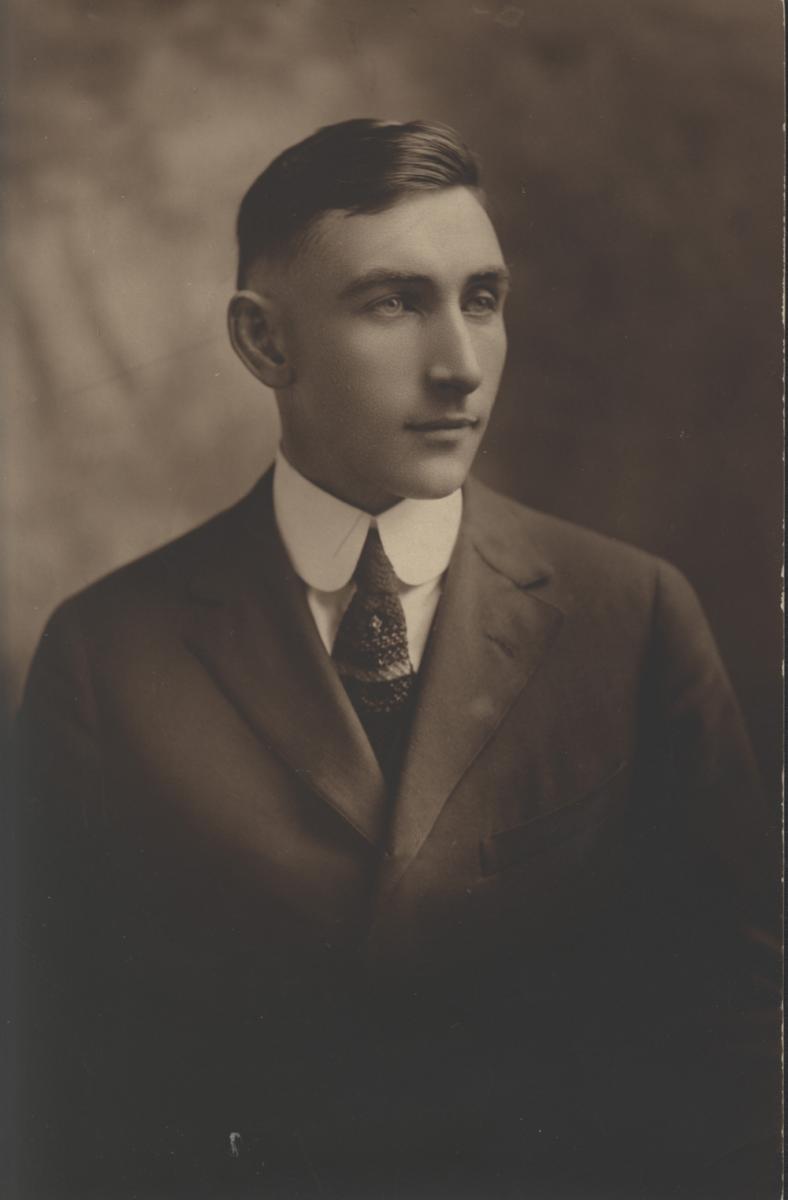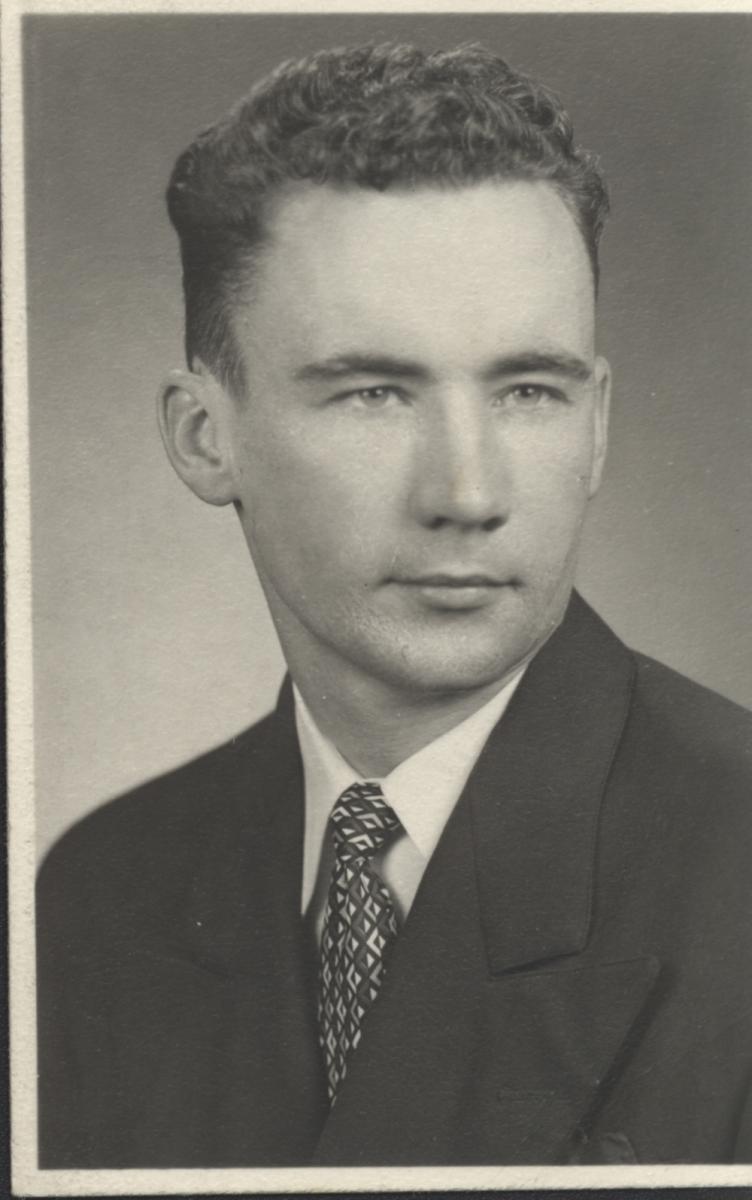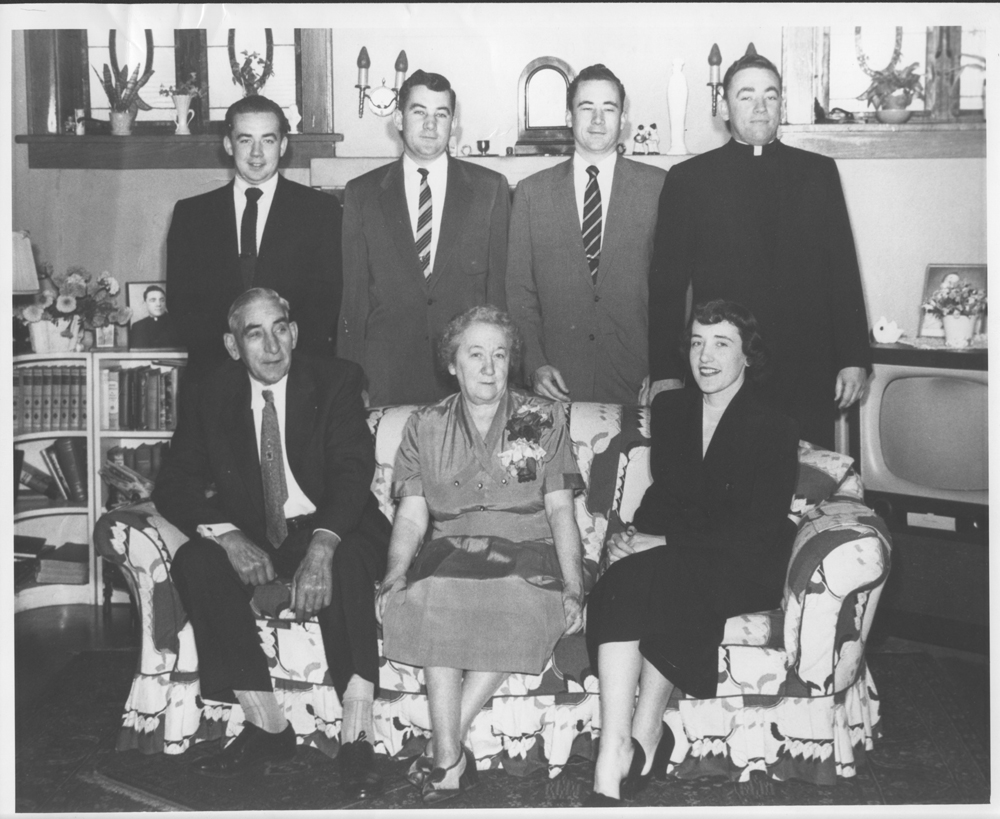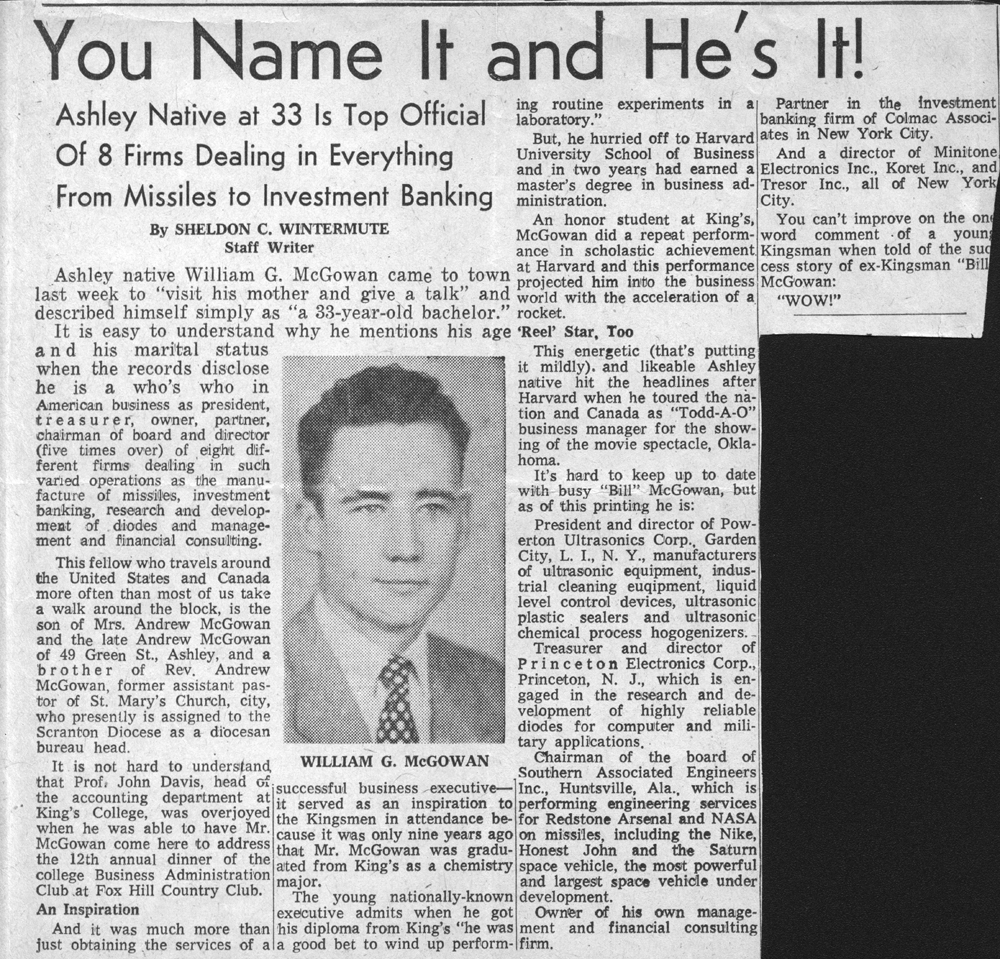William G. McGowan was born December 27, 1927 in the small coal mining and railroad town of Ashley, Pennsylvania. His father, Andrew, was a railroad engineer on the Central Railroad of New Jersey.
Like his father, William McGowan also worked on the railroad and worked nights so that he could attend high school during the day. As would be the case throughout much of McGowan’s life, he had a number of different jobs, including dispatcher, weigh-station attendant, and car checker.

McGowan joined the Army after high school and served as a medic in Europe, participating in the Berlin Airlift (1948-1949). After three years in the U.S. Army, he attended Kings College in Wilkes-Barre, Pennsylvania. McGowan continued to work nights for the railroad and attended Kings during the day. His favorite job with the railroad was as a station clerk. At night, trains came by so infrequently that McGowan could indulge in his passion for reading, a four-hour-a-day habit that he continued throughout his life.
McGowan earned a Bachelor of Science degree from Kings College in chemistry in 1952. Interested in eventually running a corporation, McGowan decided to attend Harvard University to pursue a business degree.

As a graduate student, McGowan worked for Shell Oil and noticed that many people in the field were bored and felt trapped in their jobs. McGowan joked that coworkers in their thirties were already retired even though they weren’t going to notify their employers for another thirty years. McGowan vowed never to adopt a dull management style; he wanted a challenge.
In 1954, McGowan received his MBA as a Baker Scholar for academic excellence and went to work for the Magna Theatre Corporation. McGowan was responsible for convincing movie theater owners to convert their projection systems to Todd-AO, the first use of 70 millimeter widescreen projectors in the motion picture industry. As with Shell Oil, McGowan found limited opportunities at Magna and moved on after two years of successful sales.
In 1956, McGowan set up a consulting business in New York City. He specialized in saving troubled companies and sometimes made drastic changes to rescue businesses. He reasoned that, if a company was in dire straits, he "couldn’t be accused putting them out of business"[1] no matter what advice he offered. Consulting was the perfect line of work for McGowan; it challenged him to overcome nearly impossible odds while still providing him control over his professional career.

Less than a year later, McGowan left consulting and entered the world of venture capital. He created COMAC, a small investment company, with the nephew of his former boss at Magna. In 1958, COMAC raised $50,000 to finance the Ultrasonic Corporation of America, which developed ultrasonic degreasing equipment. The next year, McGowan changed the name of the company to Powerton and raised an additional $150,000 to market a new product.
Powerton developed an ultrasonic probe that could be used to run diagnostic tests without damaging sensitive materials. The probe was widely used in NASA’s Atlas-Centaur rocket program and on Navy Polaris submarines to check for leaks and monitor fuel levels.

The company went public in 1960, making substantial profits, but McGowan did not see Powerton expanding beyond cleaning, degreasing and testing. As a result, he sold the company to another aerospace firm. McGowan found his experience with the aerospace industry extremely educational and learned about complex technology. After he entered the telecommunications business, McGowan saw its operative technology as being plain vanilla in comparison.
After a short stint with an automotive technology company, McGowan decided to take some time off to travel with his older brother, Father Andrew J. McGowan. The McGowan brothers traveled the world on a year-long sabbatical.
McGowan found the trip with his brother especially refreshing because, at age forty, he had become complacent. He found exactly what he was looking for when he returned from his trip. Through a mutual acquaintance, he was introduced to Jack Goeken and MCI.
[1] Quote taken from Oral History of William G. McGowan, May 4, 1988, p. 143. View item in Hagley Digital Archives

